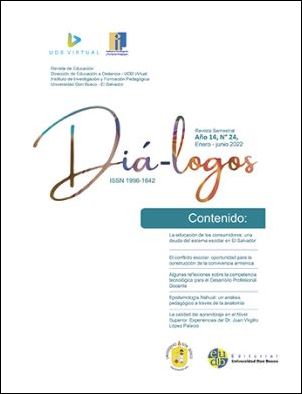La educación de los consumidores: una deuda del sistema escolar en El Salvador
DOI:
https://doi.org/10.5377/dialogos.v24i1.14767Palabras clave:
educación, consumo, escuela, dignidad, sostenibilidadResumen
En la actualidad, el hiperconsumo se ha convertido no solo en una práctica normalizada sino, también, en un símbolo de valía personal. La posesión de bienes materiales suele percibirse como un condicionante del valor propio ante los demás y, en esta lógica, se generan diversos impactos adversos tanto para el individuo como para el entorno. Ante este contexto, ¿cuál ha sido la postura del sistema educativo nacional para contender la narrativa de la sociedad de consumo? Ciertamente, en El Salvador se han implementado algunas iniciativas para responder a esta problemática a través de la formación escolar. Sin embargo, las mismas no han logrado permear de forma significativa en los hábitos de consumo de los salvadoreños.
Este artículo tiene dos propósitos. Primero, desarrolla la tesis que la educación de los consumidores ha sido una temática relegada en el sistema escolar de El Salvador, pese a ser uno de los ejes transversales consignados en los Fundamentos Curriculares de la Educación Nacional. Segundo, se hace una propuesta de los elementos que una intervención pedagógica debería incorporar para el abordaje de esta temática, ya que se argumenta que la escuela juega un papel crucial para fomentar el consumo basado en la dignidad de la persona humana.
Descargas
268

